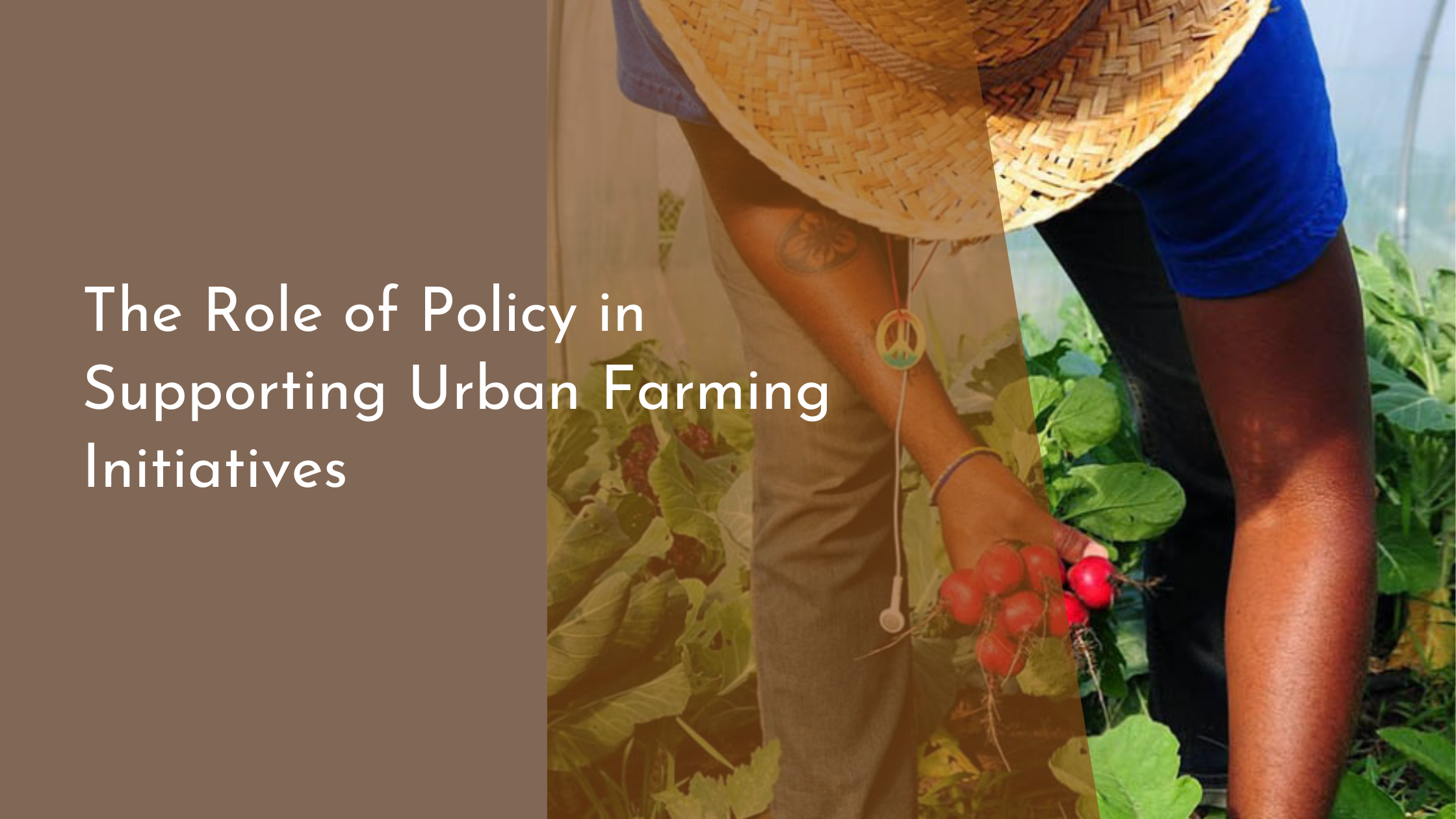The Role of Policy in Supporting Urban Farming Initiatives
Urban farming is rapidly gaining popularity as an innovative solution to the challenges of food security, sustainability, and community engagement. These initiatives transform underutilized city spaces into productive agricultural centers, fostering local food production and reducing environmental impact. However, to thrive, urban farming projects require robust policy support from local governments and institutions. This article explores the critical role that policy plays in nurturing urban agriculture, delving into various supportive policies, examining successful case studies, and envisioning the future of urban farming.
Understanding Urban Farming: A Growing Trend
Urban farming is more than just a trend; it is a movement aimed at reshaping how we produce and consume food within city landscapes. This form of agriculture encompasses a wide range of activities, from rooftop gardens and vertical farms to community gardens and hydroponic setups. The appeal of urban farming lies in its ability to provide fresh, locally-sourced produce, reduce food miles, and contribute to the greening of urban areas. With growing awareness about sustainability, urban farming offers an appealing solution for environmentally conscious city dwellers.
Moreover, urban farming initiatives serve as vital community hubs, fostering social interaction and education about sustainable practices. They provide opportunities for residents to engage with nature, learn about food production, and develop skills necessary for self-sufficiency. As more people recognize the potential of urban farming, it is becoming an integral part of urban planning and development strategies, offering promising solutions to urban food deserts and contributing to overall community well-being.
Key Policies Supporting Urban Agriculture
Supporting urban agriculture requires thoughtful policies that address zoning, land use, and resources allocation. Zoning regulations are crucial as they determine where and how urban farming can take place. Cities that have adapted their zoning laws to accommodate urban agriculture often see a surge in farming activities, as these regulations help streamline processes for setting up gardens and farms. Additionally, supportive land use policies can prioritize vacant or underutilized land for agricultural purposes, providing a practical foundation for urban farming projects.
Resource allocation policies also play a pivotal role in supporting urban agriculture. These policies can include financial incentives such as grants or tax breaks for urban farmers, as well as access to resources like water and compost. Equally important are education and training programs funded by local governments, which help equip residents with the skills needed to start and maintain urban farms. By focusing on these areas, policies can effectively encourage the growth and success of urban farming initiatives.
Case Studies: Success Stories in Urban Farming
Detroit, once known for its industrial prowess, has become a beacon of urban farming success. The city’s decline in manufacturing left vast areas of vacant land, which community groups and enterprising individuals have transformed into thriving urban farms. With strong support from local policies that facilitate access to land and resources, Detroit’s urban farming initiatives have not only improved food security but also revitalized neighborhoods and fostered economic development.
Another inspiring success story is found in Havana, Cuba, where urban farming has played a critical role in addressing food shortages. The Cuban government implemented policies that supported organic urban agriculture, turning rooftops and empty lots into productive farms. These efforts have resulted in a robust urban farming network that supplies fresh produce to city residents, demonstrating the power of policy support in driving urban agricultural success.
Concluding Thoughts: The Future of Urban Farming
As urban populations continue to grow, the importance of sustainable food systems becomes ever more pressing. Urban farming offers a promising path forward, capable of addressing food security concerns while promoting environmental stewardship and community engagement. However, the future success of urban farming initiatives largely hinges on the continued development and implementation of supportive policies. Policymakers must remain flexible and adaptive, ensuring that urban agriculture can thrive in a rapidly changing world.
Looking ahead, the integration of technology in urban farming practices promises exciting advancements. Innovations such as automated systems, data-driven farming techniques, and advanced hydroponics could revolutionize urban agriculture, making it even more efficient and accessible. With the right policy frameworks in place, urban farming can become a cornerstone of sustainable urban living, providing cities with a resilient and self-sufficient food source.
Urban farming is not just a trend but a vital component of a sustainable future. With the right policy support, it holds the potential to transform urban landscapes, support local economies, and foster healthier communities. As cities continue to evolve, embracing urban agriculture can lead to a more sustainable and connected world, where food production and urban living coexist harmoniously.

